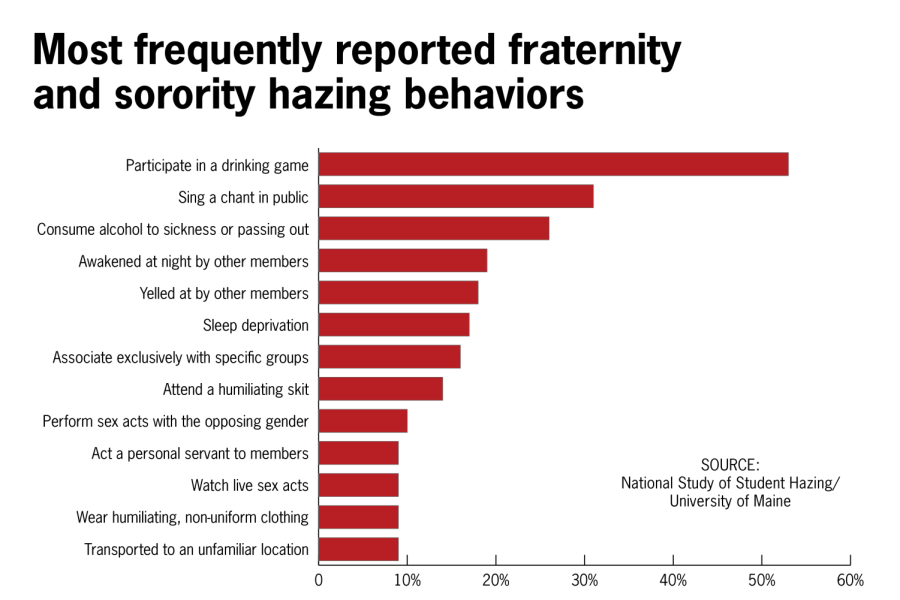Study finds hazing may not strengthen group solidarity in fraternities
September 20, 2022
Though historically used by fraternities to initiate members, the idea that hazing increases social cohesion may not be true, according to a Sep. 12 study co-authored by a UT researcher.
Over a 10-week induction process repeated for six different pledge classes between 2012 and 2014, participants from an anonymous fraternity filled out a survey at five points rating the harshness and fun of their induction and their self-reported ratings of solidarity among the class. The results found that while inductees were getting closer to one another and the chapter over time, having “fun” contributed more to this feeling than hazing.
“There’s some small, slight positive relationships (between feelings of solidarity and the severity of the induction),” researcher Aldo Cimino said. “But they’re dwarfed by just measuring how much ‘fun’ pledges are managing to have as part of the induction process … so in our data, ”
Co-author Benjamin Thomas said their study is the first of its kind because no previous research has been able to gain this level of access over time to a real-world hazing group. He said the idea of earning your stripes is something that exists in all types of groups, but initiation rituals become problematic when the act of hazing has a higher priority than its purpose.
“In this case, you can think about when the group no longer sees hazing as … ‘hey, this is a great way for us to all have a laugh together or all of us to feel like we’ve gone through the same thing together,’” said Thomas, a research associate for the Center for Leadership and Ethics at UT. “Instead, it’s more about how much can this kid drink … we’re no longer doing something that serves a purpose.”
Cimino, an assistant cultural anthropology professor at Kent State University, said the study’s results show a need for more serious real-world tests to re-examine long-held assumptions about hazing rituals.
“Generally … administrators and advocates approach hazing as though the desire for fraternities to create a severe induction is fundamentally illegitimate,” Cimino said. “They think that there’s no reason to do anything other than trying to eradicate (hazing), but one thing they may need to start considering is … that people care deeply about these rituals.”
He said that it is not unreasonable for fraternity members to want to have a challenging induction into their private social clubs, so administrators should focus on making induction processes safer rather than total prohibition.
“We need to start seriously considering harm reduction approaches to hazing,” Cimino said, “Ones that are less focused on hazing prohibition, and more focused on showing fraternity members how to do this stuff safely.”



